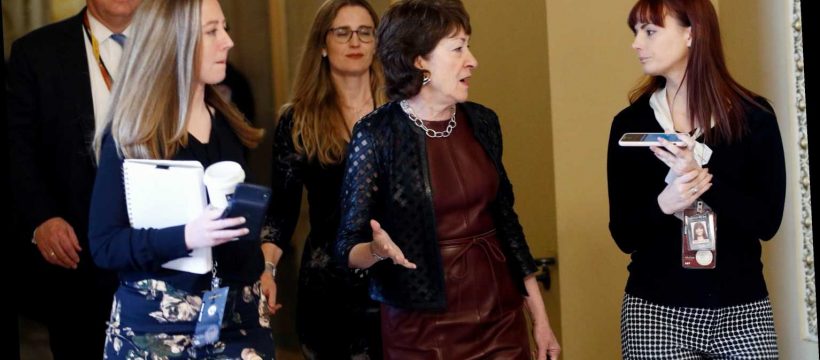WASHINGTON – If you can tell a book by its cover, the questions posed by Republican and Democratic senators at President Donald Trump’s impeachment trial Wednesday clearly showed one thing: Most of their minds are made up.
Hour after hour, Republicans directed friendly questions to the president’s lawyers, while Democrats tossed softballs to House managers prosecuting the case against Trump for abuse of power and obstruction of Congress. Frequently, senators merely asked their side to respond to the other side’s arguments.
So it was unsurprising to hear many Democrats asking about the need for witnesses such as John Bolton, the former White House national security adviser whose upcoming book may provide the link between Trump’s desire for Ukraine to investigate his political rivals and the delaying of military aid.
And it came as no shock that Republicans focused on perceived shortcomings in the House impeachment process and the problems and delays that could cause if the Senate seeks new testimony and documents.
After a week of opening statements from the two sides, the questions from senators – delivered in writing and read by Chief Justice John Roberts – represented a new phase in the impeachment trial that will continue Thursday. Then on Friday, the central issue of witnesses and documents will be addressed.
With that in mind, the most interesting question may have come at the very outset of Wednesday’s session. Three Republicans whose votes on witnesses and documents are in doubt – Sens. Susan Collins of Maine, Mitt Romney of Utah and Lisa Murkowski of Alaska – asked how the Senate should judge Trump’s actions if he had more than one motive.
Sen. Susan Collins, R-Maine, was among few senators Wednesday whose views on President Donald Trump's impeachment trial were unclear. (Photo: Steve Helber, AP)
That gave White House deputy counsel Patrick Philbin the opportunity to say that any legitimate public interest should be enough, even if there was a personal motive as well.
As the day wore on, some of the questions became more pointed.
Republican Sen. Lindsey Graham, who chairs the Senate Judiciary Committee, and Sen. Ted Cruz asked if it would have been wrong for President Barack Obama to seek an investigation of Romney’s son by a foreign power, a comparison to Trump’s interest in former vice president Joe Biden’s son, Hunter. Later, Cruz asked if the person who first blew the whistle on Trump’s dealings with Ukraine worked for Biden.
Democratic Sens. Martin Heinrich and Richard Blumenthal asked pointed questions about White House efforts to block publication of Bolton’s book, now in manuscript form. And Democratic Sens. Patty Murray and Kamala Harris asked if the recent revelation of a tape showing that Trump demanded the ouster of U.S. ambassador to Ukraine Marie Yovanovitch indicates more revelations to come.
Many of the questions appeared to have been coordinated with the White House lawyers or House members on the receiving end. House members had video clips ready to use in some of their responses; another time, they had a list of points to make after being asked if they wanted to respond to the White House lawyers’ opening statements, which were completed Tuesday.
The overall impression left by the first day of questions was that senators have made up their minds and merely want more reasons to defend their upcoming votes. If that’s the case, Friday could give Republicans the chance to show if they have 51 votesagainst further testimony and evidence. That would seal the deal for the president.
Contributing: Jeanine Santucci, Christal Hayes and Nicholas Wu.
Source: Read Full Article
